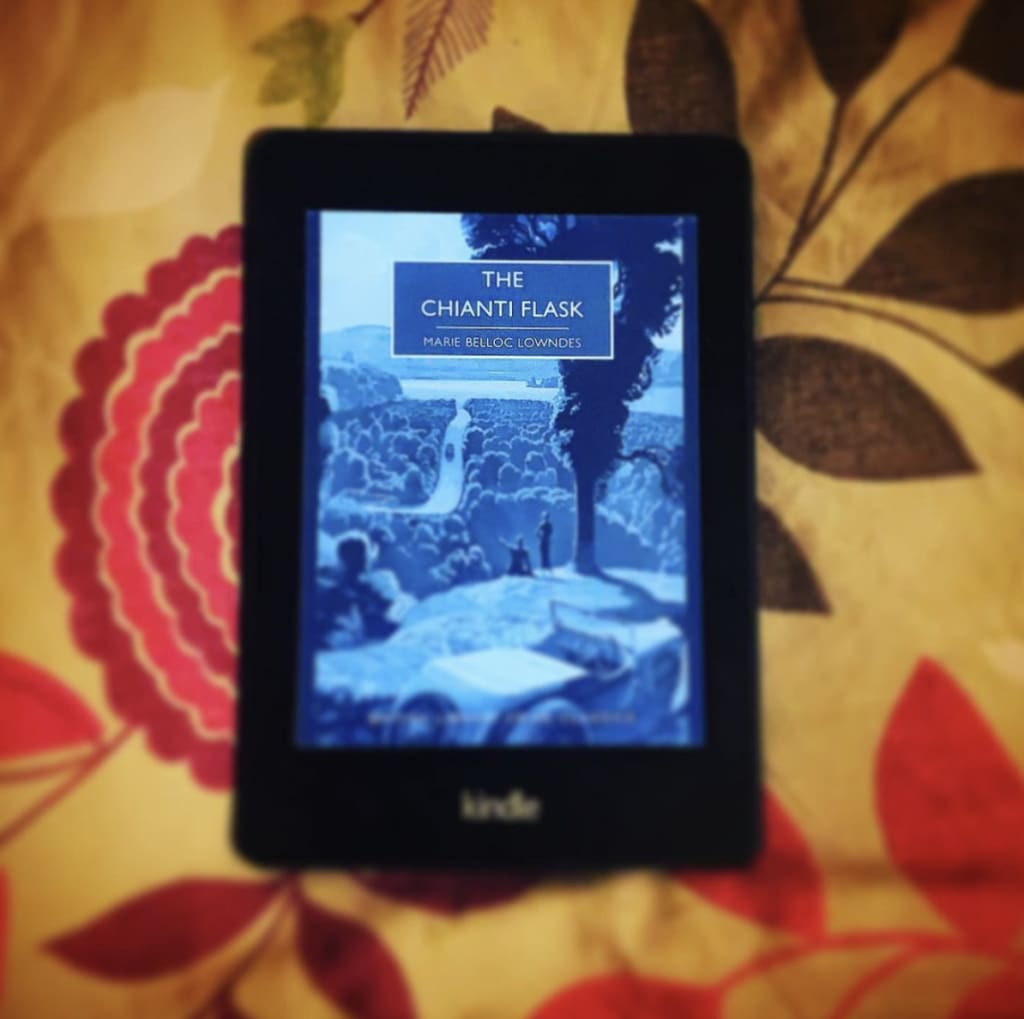Book Review: "The Chianti Flask" by Marie Belloc Lowndes
5/5 - a psychological thriller of classic crime...

I have read so many of the British Library Crime Classics Books that now, I am actually just waiting for more and more of them to come out so that I can read the newer ones. One of the more recent ones I read included a foreign man who was hunted down but, I think that this book - “The Chianti Flask” was very different than the usual requests I have of a crime novel. As you know, I am in love with classic crime. Crime novels and films of the 1930s and 1940s are among some of my favourite re-reads and replays on my bookshelf and DVD player. The books of John Dickinson Carr and the like alongside the films of Humphrey Bogart, Edward G. Robinson and the classic Hollywood era. But I think that “The Chianti Flask” has truly changed my perception on what classic crime novels can be. More focused on the way in which there is a psychological perception of crime through the accused and their social circles - this book is fantastic at moving the genre forward into the new, darker criminal fiction age.
The book starts in a courtroom where Laura, a woman in her thirties, has been accused of murdering her husband - a man of his sixties. She is acquitted within the first few pages and then spends her time going in and out of nightmares, growing pale, having nobody visit her and keeping away from prying eyes and awe-driven expressions, she tries to create a new life and identity for herself as a free woman. Many people know her as upright and worthy, a gentlewoman who has been wrongly accused of a heinous crime and now, the whole ordeal is taking its toll on her psychologically and physically. She grows thin, pale, weak and frail day by day and does not seem to be getting better. But then fate steps in and a man she never thought she would fall for comes into her life and asks her to marry him. Only then does she realise that not marrying out of love is wrong and that this is the same thing that happened last time. The entire plot begins to unravel itself in spectacular fashion, ending on this crescendo of absolute suffering.
It’s a brilliantly written book with a lot of focus on emotion and psychological state. I have to say that all the way through the book, we are constantly made aware of Laura’s condition even when she is living with the family friends. She admits that it is this family friend that convinced her to marry her now-dead husband but does not state why she did not back out of it. The over-bearing nature of this couple seems to be out of order, though they insist that they are protecting her there is nobody who understands her better than the doctor that they hired to take care of her.
All in all, I think that this book really shows us that even in those days, there were no limitations to the genre and no limitations to where it could reach in terms of story. This is not the only time I have read a book that has started with the crime already having been committed - as you know “Verdict of Twelve” and “Twelve Angry Men” start in a similar way. But this is the first time I have read a book where it focuses on how the aftermath of the acquittal seems to take its toll on the main character. The way in which a seemingly false guilt and suspicion can plague someone for ages and ages after a verdict of ‘not guilty’ was delivered.
About the Creator
Annie Kapur
200K+ Reads on Vocal.
English Lecturer
🎓Literature & Writing (B.A)
🎓Film & Writing (M.A)
🎓Secondary English Education (PgDipEd) (QTS)
📍Birmingham, UK






Comments
There are no comments for this story
Be the first to respond and start the conversation.